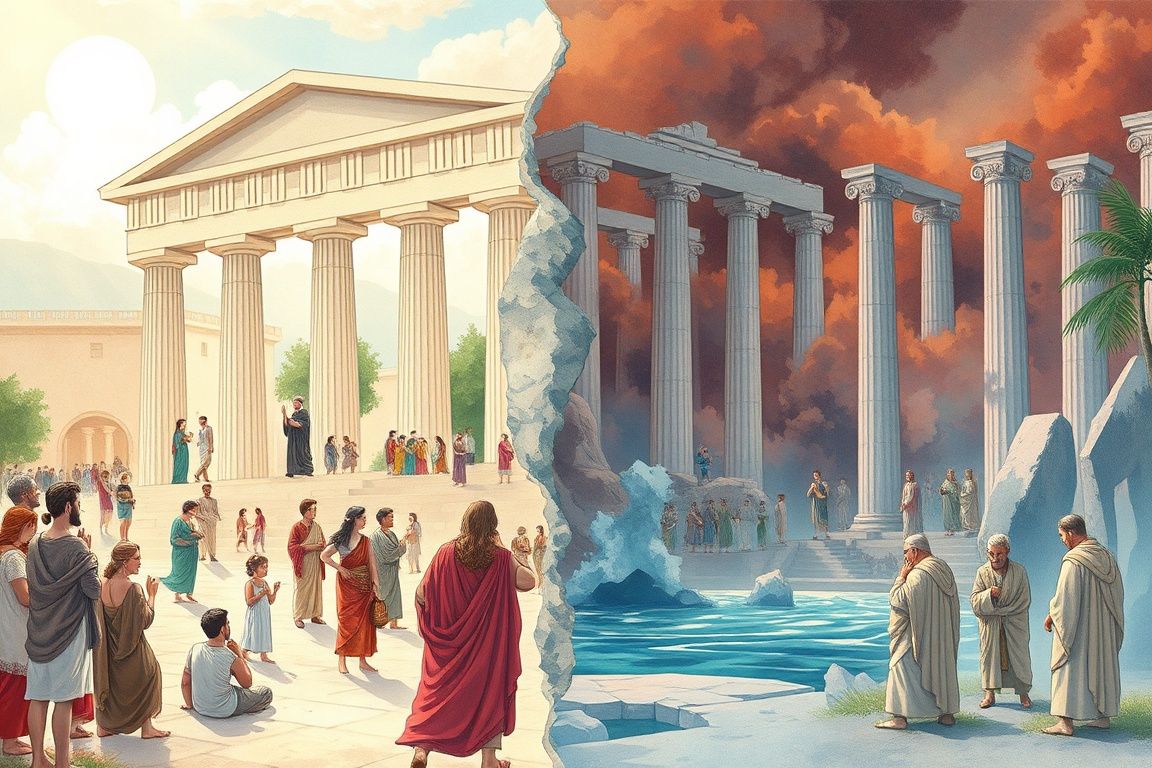The Rise and Fall of Ancient Greece

This course traces the development of ancient Greek city-states, including Athens and Sparta, and their influence on politics, art, and philosophy. Participants will also study Greek myths, from the epic tales of Homer to the intricate myths of the Olympian gods.
Why It’s Worth It
Gain a deep understanding of ancient Greek city-states' influence on modern governance and society, enriching your historical perspective.
Develop critical thinking as you analyze the evolution of democracy in Athens and militarism in Sparta, honing skills applicable in various fields.
Enhance your cultural literacy by exploring Greek mythology, literature, and art, equipping you with knowledge that resonates in contemporary art and philosophy.
Your Learning Roadmap
Foundations of Ancient Greece
This module covers the early development of ancient Greece, including its geographical features, tribal beginnings, and early cultural influences. Participants will explore the factors that shaped the identity of the Greek world. The module lays the groundwork for understanding how ancient Greek society evolved over time. Geography and Early Settlement Cultural Influences and Migrations The Birth of City-States
The Rise of Greek City-States
This module investigates the emergence and evolution of Greek city-states, focusing on the development of political institutions and societal norms. It compares the distinct characteristics of prominent cities, emphasizing Athens' democratic innovation and Sparta's militaristic society. The module provides context for the cultural and political dynamism that defined ancient Greece. Political Innovations in Athens Spartan Society and Militarism Comparative City-State Analysis
The Golden Age of Athens
This module delves into the remarkable period of creative and intellectual achievements in Athens. It covers the significant contributions of philosophy, drama, art, and architecture. Participants will understand how the Golden Age influenced both contemporary society and subsequent civilizations. Intellectual and Artistic Revolution Philosophy and the Birth of Rational Thought Democratic Achievements and Civic Life
Sparta: Society and Militarism
This module examines the distinctive aspects of Spartan society and the emphasis on military excellence. It covers the rigorous education system, communal living, and the dichotomy between warriors and civilians. The content highlights how Sparta maintained its dominance through discipline and a focused martial culture. The Spartan Agoge Social Structure and Citizenship Warfare and Spartan Tactics
Greek Mythology and Religion
This module examines the legendary tales of gods, heroes, and epic adventures that defined Greek mythology. It dives into the narratives provided by Homer and other sources while linking myth with religious practice and cultural identity. Learners will appreciate the ways in which these myths shaped art, literature, and moral values in ancient Greece. Origins of Greek Myths The Olympian Gods Epic Tales from Homer
Decline and Legacy of Ancient Greece
This final module examines the multifaceted reasons behind the decline of ancient Greece, including internal strife and external pressures. It investigates the transformation from classical glory to periods of turbulence, and how the legacy of Greek thought, art, and governance survived. The module invites learners to reflect on the long-lasting influence of Greek culture on the modern world. Internal Challenges and Political Turmoil External Pressures and Conquests The Lasting Legacy of Greek Civilization
What Users Are Saying
All You Need to Know
Enroll Now to Discover Greece!
Learn at your own pace with engaging modules and lessons.
Interact in real time with an AI tutor for personalized guidance.
Explore ancient Greece through detailed discussions and examples.
Receive instant feedback to enhance your understanding.
Access the course materials anytime, anywhere.
Discover the compelling connections between ancient and modern cultures.
